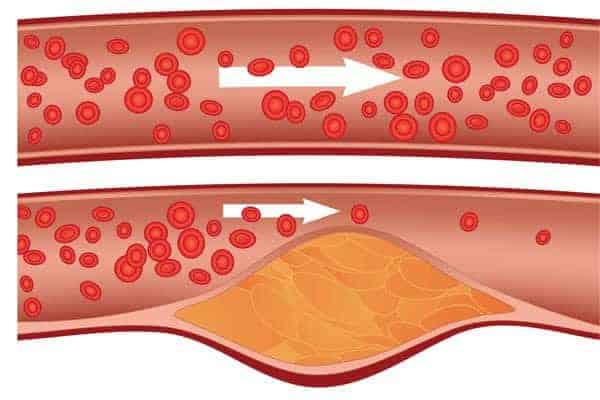10 Truths About Sugar Nutritionists Want You to Know
Sugar is everywhere—from your morning coffee to seemingly healthy snacks. Despite its omnipresence, misconceptions about sugar continue to cloud our understanding of what it really does to our bodies. Ongoing debates about sugar’s role in health only add to the confusion. Is all sugar bad? Should you avoid it entirely, or is moderation the key? Understanding the science-backed facts about sugar is crucial for making informed choices. This article breaks down the truths nutritionists wish everyone knew, helping you sift fact from fiction in your daily diet.
1. Not All Sugars Are Created Equal

There’s a big difference between the sugars found naturally in whole fruits and dairy and those added to processed foods. Natural sugars come paired with fiber, vitamins, and minerals, which slow their absorption and offer nutritional benefits. Added sugars, on the other hand, are often “empty calories” that can spike blood sugar quickly. Nutritionists recommend checking ingredient labels to spot hidden sources of added sugars—words like sucrose, high-fructose corn syrup, and dextrose are common culprits. Knowing these differences helps you make smarter, healthier choices every day.
2. Sugar Is Not Inherently Evil

Contrary to some headlines, sugar is not a poison or an enemy to be feared. Like fats and carbohydrates, sugar plays a role in our bodies—providing energy for daily activities. Problems arise only when we consistently overconsume it, which can contribute to weight gain, diabetes, and other health concerns. Nutritionists agree that moderation is key. You don’t have to cut out sugar entirely; instead, focus on a balanced diet where sugar is just one part of a healthy mix, not the main attraction.
3. Hidden Sugars Are Everywhere

Sugar isn’t just in desserts or sodas—it often lurks in foods you wouldn’t expect. Common items like pasta sauces, breads, and salad dressings can contain surprising amounts of added sugar. Food manufacturers use dozens of names for sugar, including maltose, cane juice, and syrup. Reading labels carefully is essential; don’t just look for “sugar”—scan for all its aliases. Nutritionists urge consumers to be label detectives, as these hidden sugars can add up quickly and impact your overall intake without you even realizing it.
4. Sugar Is Linked to More Than Just Weight Gain

While sugar’s role in weight gain is well known, its impact goes much further. Excessive sugar intake has been linked to increased risk of heart disease, type 2 diabetes, and even fatty liver disease. Research also shows that high sugar consumption can harm dental health, leading to cavities and gum issues. Recent studies suggest that diets high in added sugars may raise inflammation and cholesterol levels. Being mindful of your sugar intake isn’t just about your waistline—it’s about protecting your overall health, inside and out.
5. Natural Doesn’t Always Mean Healthy

It’s easy to believe that sweeteners like honey, agave, or coconut sugar are far healthier than regular white sugar. However, nutritionists point out that your body processes most sugars in similar ways, regardless of the source. While natural sweeteners may offer trace minerals or a slightly lower glycemic index, these benefits are minimal when compared to overall sugar consumption. Don’t be fooled by “natural” labels—moderation is still key. Whether it’s organic honey or table sugar, too much can have the same negative health effects.
6. Sugar Can Be Addictive for Some People

There’s growing evidence that sugar can activate pleasure centers in the brain, releasing chemicals like dopamine that make us feel good. For some, this creates a cycle of cravings and overconsumption, similar to the effects seen with other highly rewarding foods or even certain substances. Nutritionists acknowledge that while not everyone gets “addicted” to sugar, those who struggle with cravings may find it hard to moderate their intake. Recognizing these patterns can help you make more mindful choices and seek support if needed.
7. Cutting Out Sugar Doesn’t Guarantee Weight Loss

Eliminating sugar from your diet might seem like a quick fix, but weight loss depends on your overall calorie balance. If you replace sugary foods with high-calorie alternatives, you may not see any results on the scale. Nutritionists stress the value of a holistic approach—focusing on balanced meals, portion control, and nutrient-dense foods. Simply put, cutting sugar alone isn’t a magic bullet. Real success comes from mindful eating, regular activity, and understanding how all foods fit into your daily energy needs.
8. Artificial Sweeteners Aren’t a Free Pass

Many turn to artificial sweeteners like aspartame, sucralose, or stevia to cut calories without sacrificing sweetness. While these can help reduce sugar intake, nutritionists caution they’re not a perfect solution. Some studies suggest artificial sweeteners may affect gut health and even increase cravings for sweet foods. Long-term safety is still being researched, so moderation remains important.
9. Sugar Labeling Can Be Confusing

Deciphering food labels isn’t always straightforward—sugar can appear under names like invert syrup, maltodextrin, or fruit juice concentrate. Recent updates to nutrition labels in countries like the U.S. now distinguish added sugars from total sugars, making it easier for consumers to track intake. Look for the “added sugars” line and scan ingredients lists for less obvious names. Nutritionists suggest learning these aliases and comparing products to make smarter choices. The more you understand labels, the easier it is to manage your sugar consumption wisely.
10. Enjoying Sugar Mindfully Is Possible

You don’t have to banish sugar to eat well—mindful enjoyment is the key. Nutritionists recommend savoring small portions of favorite treats, choosing quality over quantity, and pairing sweets with fiber or protein to slow sugar absorption. Plan indulgences so they fit comfortably within your overall nutrition goals. By being intentional and present when you enjoy something sweet, you can satisfy cravings without guilt or overdoing it. Remember, it’s about creating a healthy relationship with food—not about perfection or strict deprivation.
Conclusion

Understanding the truths about sugar empowers you to make healthier, more informed choices. With sugar hiding in unexpected places and myths clouding our judgment, awareness and moderation become your best tools. Remember, sugar itself isn’t the enemy—it’s how much and how often you consume it that matters. Read labels, savor treats mindfully, and aim for balance in your diet. By staying informed and intentional, you can enjoy sugar as part of a nourishing lifestyle—no guilt, just smart decisions for your health and well-being.
.article-content-img img { width: 100% }




